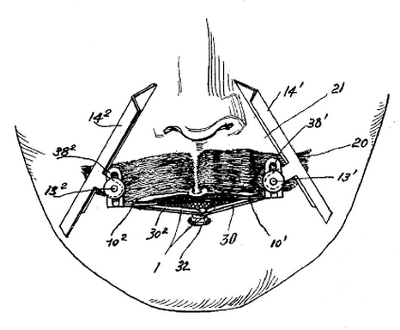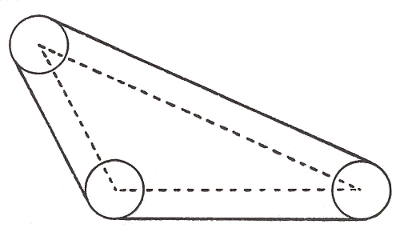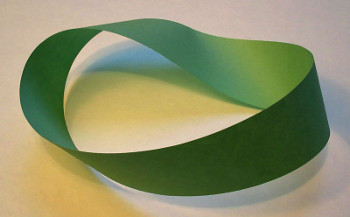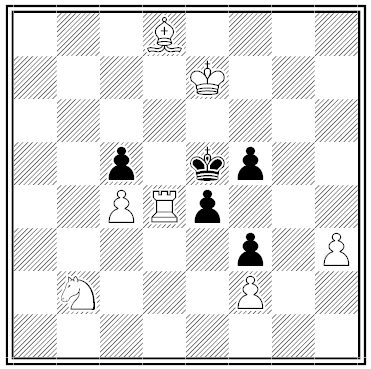Put Upon
Letter to the Times, Oct. 14, 1939:
Sir,
If ordinary English usage counts for anything, an evacuee is a person who has been evacued, whatever that may be, as a trustee is one who has been trusted; for ‘evacuee’ cannot be thought of as a feminine French form, as ’employee’ is by some.
Where are we going to stop if ‘evacuee’ is accepted as good English? Is a terrible time coming in which a woman, much dominated by her husband, will be called a dominee? Will she often be made a humiliee by his rough behavior and sometimes prostree with grief after an unsought quarrel?
Must sensitive people suffer the mutilation of their language until they die and are ready to become cremees?
I am, Sir, your obedient servant,
F.H.J. Newton
Lip Service

When one is a dashing French inventor one has little patience for clumsy mustache hygiene. This “apparatus for the cut of the mustache,” patented by Pierre Calmels in 1927, “gives the mustache the desired shape and automatically reproduces this shape without any possibility of error and without loss of time.” Adjust the guide once into the proper configuration and you can use it thereafter as a sort of stencil: Just hold the apparatus between your teeth and trim the whiskers to the designated length.
Edwin Green’s “design for a mustache-guard for cups,” below, was patented in 1898: The plate can be clamped to a teacup to keep one’s mustache dry. The idea was referenced a century later in a related invention — an “apparatus and system for covering and protecting the rim of a paint can.”

Over and Out
If it’s a sin to end a sentence with one preposition, then presumably it’s even worse to end it with two. How far can we take this? For the August 1968 issue of Word Ways: The Journal of Recreational Linguistics, Darryl Francis devised one sentence that ends with nine prepositions. If the Yardbirds’ 1966 single “Over, Under, Sideways, Down” were exported to Australia and then retrieved by a traveler, the question might be asked:
“What did he bring ‘Over, Under, Sideways, Down’ up from Down Under for?”
Inspired, Ralph Beaman pointed out that if this issue of the journal were now brought to a boy who slept on the upper floor of a lighthouse, he might ask:
“What did you bring me the magazine I didn’t want to be read to out of about ‘”Over Under, Sideways, Down” up from Down Under’ up around for?”
“This has a total of fifteen terminal prepositions,” writes Ross Eckler, “but the end is not in sight; for now the little boy can complain in similar vein about the reading material provided in this issue of Word Ways, adding a second ‘to out of about’ at the beginning and ‘up around for’ at the end of the preposition string. The mind boggles at the infinite regress which has now been established.”
In a Word
feriation
n. the act of observing a holiday
Brewing Trouble
A curious excerpt from The Pursuit of the Heiress, a history of aristocratic marriage in Ireland by A.P.W. Malcolmson, 2006:
Another strange tale, which this time ended less happily for the heir presumptive, is that of the 3rd Earl of Darnley, an eccentric bachelor who suffered from the delusion that he was a teapot. In 1766, when he was nearly fifty and had held the family title and estates for almost twenty years, Lord Darnley suddenly and unexpectedly married; and between 1766 and his death in 1781, he fathered at least seven children, in spite of his initial alarm that his spout would come off in the night.
I thought this couldn’t possibly be true, but Malcolmson gives two sources, a letter from the Rev. George Chinnery to Viscountess Midleton, Aug. 18, 1762, kept at the Surrey History Centre in Woking, and a typescript family history by Rear Admiral W.G.S. Tighe. An Irish auction house supports the story.
(Thanks, Donald.)
Belt Loop

A puzzle by Harry Langman:
A thin belt is stretched around three pulleys, each of which is 2 feet in diameter. The distances between the centers of the pulleys are 6 feet, 9 feet, and 13 feet. How long is the belt?
Ozymandias Without Es
I know a pilgrim from a distant land
Who said: Two vast and sawn-off limbs of quartz
Stand on an arid plain. Not far, in sand
Half sunk, I found a facial stump, drawn warts
And all; its curling lips of cold command
Show that its sculptor passions could portray
Which still outlast, stamp’d on unliving things,
A mocking hand that no constraint would sway:
And on its plinth this lordly boast is shown:
“Lo, I am Ozymandias, king of kings:
Look on my works, O Mighty, and bow down!”
‘Tis all that is intact. Around that crust
Of a colossal ruin, now windblown,
A sandstorm swirls and grinds it into dust.
(By Georges Perec, translated from the French by Gilbert Adair.)
Vanishing Act

In 1913 mathematician P.E.B. Jourdain proposed a familiar paradox:
On one side of a blank strip of paper, write The statement on the other side of this paper is true.
On the other side, write The statement on the other side of this paper is false.
“The paradox in this form is quite vulnerable to an absolute refutation,” wrote Valdis Augstkalns in a 1970 letter to The Listener. “One takes the paper, gives it a half twist, and joins the ends to form a Möbius strip. The serious and philosophically legitimate question is transformed to ‘Eminent members of the panel, which is the other side of the paper?'”
Signs and Wonders
COLUMBIA, S.C., May 29. — Closely following the appearance of the hand of flame in the heavens above Ohio comes a story from Darlington County, in this State, of a flying serpent. Last Sunday evening, just before sunset, Miss Ida Davis and her two younger sisters were strolling through the woods, when they were suddenly startled by the appearance of a huge serpent moving through the air above them. The serpent was distant only two or three rods when they first beheld it, and was sailing through the air with a speed equal to that of a hawk or buzzard, but without any visible means of propulsion. Its movements in its flight resembled those of a snake, and it looked a formidable object as it wound its way along, being apparently about 15 feet in length. The girls stood amazed and followed it with their eyes until it was lost to view in the distance. The flying serpent was also seen by a number of people in other parts of the county early in the afternoon of the same day, and by those it is represented as emitting a hissing noise which could be distinctly heard.
— New York Times, May 30, 1888

